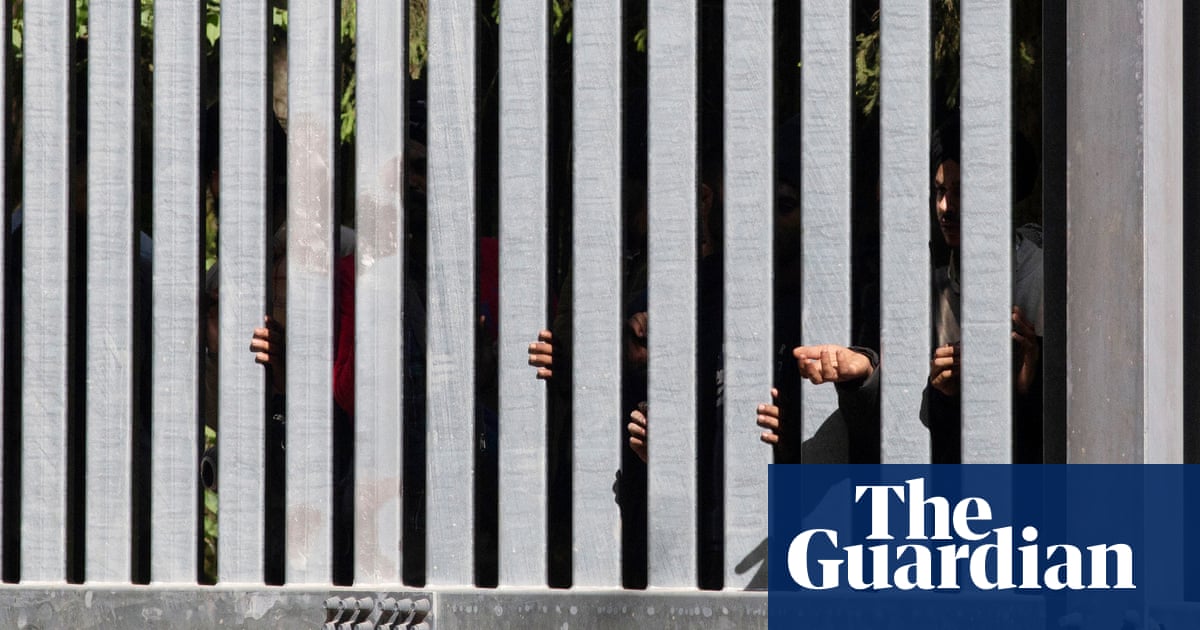
The small fires they are building will do little to warm the refugee and migrant families attempting to cross the border between Belarus and Poland in a desperate effort to reach European soil. Freezing temperatures and the lack of humanitarian support have already resulted in at least nine deaths, while dozens of people have reported injuries, theft and abuse at the hands of the authorities.
Another humanitarian catastrophe is unfolding on the European Union’s doorstep.
Poland has responded by deploying 20,000 border police, firing water cannon and teargas at asylum seekers, reinforcing its border fencing and blocking access for journalists and aid organisations. This need to react is understandable: Belarus president Alexander Lukashenko’s use of refugees and migrants as pawns for political gain, luring them from the Middle East to deliberately create a border crisis, is heinous. Still, Poland’s militarised response is disproportionate, and is – according to the UN – a breach of humanitarian law and the right to asylum. But while Lukashenko’s actions are appalling, what is really to blame for this crisis is a string of shortsighted and transactional agreements with the European Union’s neighbouring countries in recent years.
The root of this latest military escalation – which involves not only Poland, but a nominal number of troops from Britain, as well as EU sanctions and strong condemnation from Nato and members of the UN security council – is a fear of migration that has loomed over EU politics since 2015. Since the Brexit vote, the dogma of “deterrence at any cost” has dominated migration policies, including the deployment of illegal “pushback” practices at external borders, such as towing migrants back on boats they arrived on, rounding up refugees on land and forcing them back out to sea, and informal detentions.
The Polish government has long been implementing a strict immigration agenda, by closing its borders – even breaching EU law by doing so and defying calls for the humane treatment of asylum seekers.
Poland is no exception. As internal divisions within the European Union deepen and the prospect of a responsible plan for hosting refugees is far from view, pushing the management of migration to agreements with non-EU countries has become the bloc’s go-to solution.
To secure the EU-Turkey deal in 2016, member states turned a blind eye to Turkey’s human rights violations in return for it stemming refugee arrivals to the Greek islands. By effectively paying the Turkish president, Recep Tayyip Erdoğan, to “keep migrants out”, it was the EU that first introduced refugees into foreign policy as bargaining chips. From then on, the precedent was set.
Similar arrangements can be found along Europe’s border regions. In Libya, the EU provided support to the Libyan coastguard to intercept asylum seekers at sea and return them to detention centres where they faced physical and sexual abuse. A standoff this spring in between Spain and Morocco – which is also one of the EU’s key partners in controlling migration from African countries – in the Spanish north African coastal city of Ceuta revealed the same pattern of migrants being used for political gain. Spain accused Morocco of flooding its borders with migrants – 2,000 of which were unaccompanied children – after Madrid allowed the leader of the Western Sahara independence movement to be treated for Covid in Spain. Footage of a months-old baby being rescued by the Guardia Civil and children using plastic bottles as floats to swim to shore is a stark reminder of the real victims of Europe’s fear of migration.
It is not just Europe’s transactional migration policies, but the language used, that sets the stage for these recurring standoffs. Across European states and political parties, refugees and migrants are often presented as a threat to national security. Greek, Polish and Turkish media have used rhetoric of “wars” at borders; Brussels, too, has adopted militarised language. Responding to incidents at Belarus’s borders over the summer, the European Commission president, Ursula von der Leyen, vowed to fight back to what she called “a hybrid attack to destabilise Europe”.
Describing – and treating – refugees as weapons diverts attention from the real issue at stake: protecting the safety and rights of people trapped at borders. The EU’s externalisation of migration control does not justify the Belarusian regime’s deliberate tactics to engineer a state-sponsored humanitarian crisis. But it should alert EU leaders to the dangers of treating humans in transactional terms.
Questionable migration deals and anti-immigration messaging not only undermine the right to asylum, but threaten the very foundations of the European project – which it might need reminding of: to promote peace, human rights and dignity, and to offer freedom, security and justice without internal borders. So long as EU countries do not respect asylum laws and continue to treat refugees with hostility and violence, countries such as Belarus, Morocco, and Turkey will continue to exploit its fear of migration. The EU has created its own achilles heel – and human beings continue to pay the price.
Anna Iasmi Vallianatou is academy fellow at the Europe Programme of Chatham House












